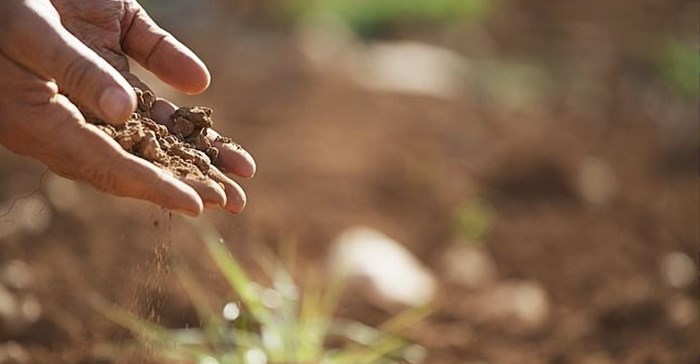
If you feel at all worried about climate change, or our future on this planet, you really should read this from beginning to end. This applies to every human on the planet and it offers great hope in very dark times.
"I feel this is extremely important, to ensure any hope for my grandchildren and those of every other human. This will offer great hope in a time of deep concern, on many fronts, in a world that is confused and leaderless. We are facing grave dangers, in global desertification and climate change, along with many of the symptoms of desertification, such as, ever-increasing droughts, floods, mega-fires, poverty, poaching, social breakdown, mass emigration to cities and across borders, violence and war."
According to our institutions, media and society, generally, the biggest things to blame for climate change are: livestock, coal and oil. These simply cannot be to blame. These are resources and no resource can ever cause a problem. Only our management of resources can be the cause of any problems.
It is how we manage livestock that is causing the desertification of the world’s arid areas, which make up over two-thirds of our planet’s land mass. It is management that calls fossil resources “fossil fuels”, to be burnt at a damaging rate. It is, without any shadow of doubt, management that is causing global desertification and climate change and all its many symptoms.
Forty years ago we discovered that the management causing our problems is reductionist, and always has been. And we discovered how management could be holistic, in all walks of life, including policy development, which would begin to address the cause of all the symptoms we keep tackling, at enormous cost to us in money and in time.
We have known how to reverse man-made desertification and begin addressing climate instability for decades. And we have long demonstrated that doing so immediately and automatically begins to deal with the many symptoms.
Recognising the cause, and the ability to address it, for the first time in history, offers team humanity great hope for the future.
We never deal with major issues as individuals, but always through our organisations, or institutions.
We form organisations because it is the most efficient way to do many things. However, once formed, organisations take on a life of their own. They do not behave as an individual human would behave. Even when an organisation murders thousands of people, it is not tried for murder, as you or I would be. Nor is any executive punished severely, no matter how much damage any organisation has done to humanity, our economy or our environment.
Organisations reflect the prevailing views of society. They lead the way with anything society believes in. Organisations are self-organising and do not end when key people die, but simply re-organise. They are defined as Complex Soft Systems.
Everything in nature is defined as a Complex Natural System. Together, nature and organisations, are everything that humans manage, from our families, to governance, with minor exceptions.
Everything else in life is what we make, rather than manage. And all that we make, from a toothbrush, to space exploration vehicles, or electricity, from solar, wind or any other source, is defined as a Complicated Hard System. By definition, nothing we make, no matter how complicated it is, is complex, because these things are not self-organising. They do not work if a part is missing, if fuel runs out, a battery goes flat, or if something breaks. Nothing we make is self-organising. Problems experienced with things we make are called ‘kind’ problems – which means that they are relatively easy to fix.
Things we manage, on the other hand, experience what are called “wicked” problems, meaning they are almost impossible to fix. It took us over 10 000 years to learn how to reverse man-made desertification, and half a century later, that is still disputed by some academics and our institutions remain inert.
And currently, climate change is a 'wicked' problem (as was desertification) incapable of solution by the institutions, upon which we rely.
There are three organisational "wicked" problems, which are resulting in the institutional log jam, that is endangering humanity:
While organisations lead with any development aligned to society’s beliefs, they also lead any ridicule and opposition to new insights that are counter-intuitive, or paradigm-shifting (nothing has changed since Galileo!). No amount of facts, evidence, data, or number of lives lost, make any difference to organisations. They only accept the new insights when a significant shift in the public mind occurs. For this to happen, it can take a century or more, as we saw with the 200 years it took the British Navy to accept lime juice could end scurvy, despite its importance to Britain and over a million sailors dying... Read more here.

AgriOrbit is a product of Centurion-based agricultural magazine publisher Plaas Media. Plaas Media is an independent agricultural media house. It is the only South African agricultural media house to offer a true 360-degree media offering to role-players in agriculture. Its entire portfolio is based on sound content of a scientific and semi-scientific nature.
Go to: http://agriorbit.com/